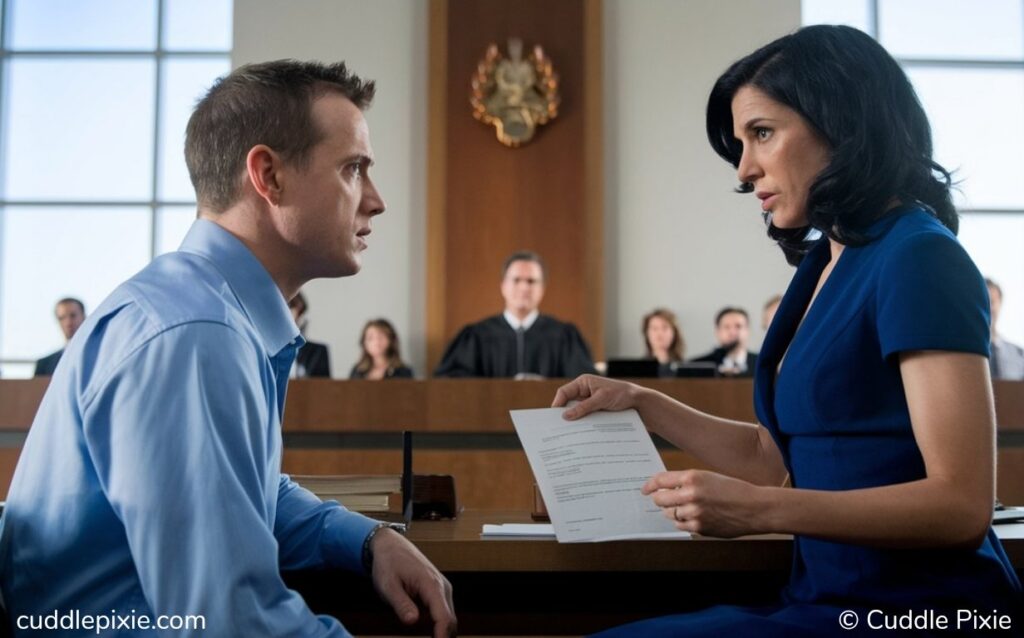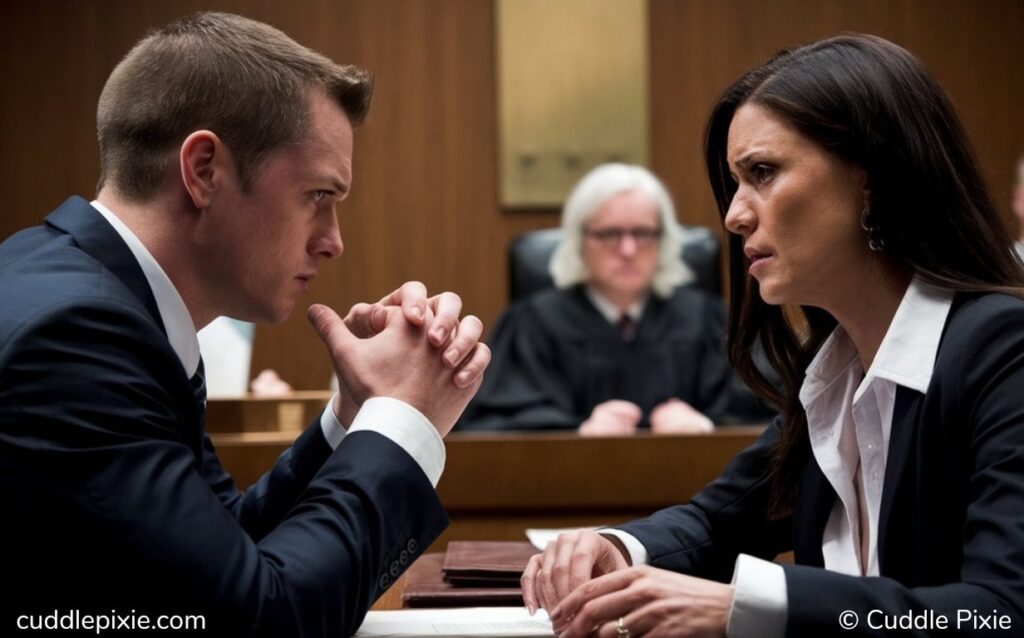Child custody disputes are often emotionally charged, filled with stress and anxiety for all parties involved. But when false allegations enter the picture, the stakes get even higher. These accusations, which can range from claims of abuse to neglect, can profoundly affect the court’s view of you as a parent and ultimately impact your custodial rights. False allegations can be a tactic to gain leverage in court, but they can be countered with the right approach. In this article, we explore how to effectively defend yourself against false accusations, providing practical strategies, expert insights, and advice to protect your parental rights and your child’s well-being.
In This Article
Understanding the Landscape of False Allegations in Custody Battles
False allegations in child custody cases are unfounded claims made against one parent by the other to gain an advantage. These claims can be distressing and damaging, leading to court interventions, supervised visitations, or even loss of custody rights. Understanding the dynamics of false accusations is the first step in preparing a solid defense.
Why Do False Allegations Occur?
Gaining Strategic Advantage:
Some parents falsely accuse their ex-partner to present themselves as the more stable, responsible, and fit parent. This can be especially common in high-conflict divorces or separations.
Emotional Retaliation:
Residual anger, bitterness, or a desire for revenge can drive one parent to make false allegations. This is often seen in relationships where infidelity, betrayal, or abuse has occurred.
Miscommunication or Misunderstanding:
Sometimes, false accusations arise from genuine misunderstandings or miscommunication. A parent may misinterpret a child’s statement or behavior and assume the worst.
Psychological Issues:
In some cases, the accusing parent may suffer from psychological issues such as Narcissistic Personality Disorder (NPD) or Borderline Personality Disorder (BPD), which can manifest in manipulative behaviors, including false accusations.
The Impact of False Allegations on Parents and Children
False allegations can have severe consequences for both the accused parent and the child involved. It is crucial to understand the depth of these impacts to navigate the legal and emotional challenges effectively.

Impact on the Accused Parent
Damage to Reputation and Relationships:
Accusations of abuse, neglect, or other misconduct can damage your reputation among friends, family, and your community. Even if proven false, the stigma of these allegations may linger.
Emotional and Psychological Distress:
Being falsely accused can trigger intense feelings of anger, anxiety, depression, and hopelessness. The stress of a custody battle, compounded by these allegations, can affect your mental health.
Financial Strain:
Defending against false accusations often requires hiring a competent family lawyer, securing expert witnesses, and possibly undergoing psychological evaluations—all of which can be expensive.
Impact on the Child
Emotional Turmoil:
Children caught in the middle of false allegations may experience confusion, fear, and guilt. They may be pressured to choose sides or manipulated into believing the false accusations.
Long-Term Psychological Effects:
Research from the American Psychological Association (APA) indicates that children involved in high-conflict custody disputes, especially those with false allegations, are at a higher risk of developing anxiety, depression, and behavioral issues.
Dr. Linda Nielsen, a leading expert on shared parenting and child custody, states, “Children need to maintain strong, healthy relationships with both parents whenever possible. False allegations can severely undermine this, causing emotional harm that can last well into adulthood.”
Legal Strategies to Combat False Allegations
When confronted with false accusations in a custody dispute, it is crucial to adopt a multi-pronged approach to protect your rights and prove your innocence.

Document Everything Meticulously
Maintaining a detailed record of all communications, events, and interactions with your ex-partner and your child is vital.
- Keep Written Records: Save text messages, emails, voicemails, and any other form of communication. This documentation can provide evidence that refutes the false claims.
- Create a Custody Journal: Document each interaction with your child, including dates, times, activities, and any notable behaviors or statements. This journal can serve as an objective record in court.
John Seidel, a family law attorney, advises, “In court, your documentation is often your best defense. Judges look for concrete evidence rather than hearsay or emotional appeals. Make sure your records are clear, detailed, and factual.”
Seek Legal Representation from an Experienced Family Lawyer
Hiring a knowledgeable family lawyer is crucial when facing false allegations. They can provide expert guidance, develop a strategic defense plan, and advocate on your behalf.
- Choose a Specialist: Opt for a lawyer who specializes in family law and has experience dealing with false accusations. They will know how to navigate the intricacies of custody disputes and the burden of proof required in such cases.
- Prepare for Court Proceedings: Your lawyer will help you gather and present evidence, advise you on court etiquette, and prepare you for cross-examinations.
Family law expert, attorney Karen Pruitt, explains, “The key is to be proactive, not reactive. A good lawyer will help you build a robust defense from day one, focusing on both disproving the allegations and demonstrating your fitness as a parent.”
Utilize Professional Evaluations
If the false allegations pertain to abuse, neglect, or mental instability, consider obtaining independent professional evaluations to counter the claims.
- Psychological Evaluations: If you are accused of being mentally unfit, a psychological evaluation from a neutral expert can demonstrate your fitness as a parent.
- Child Custody Evaluations: A court-appointed or independently-hired custody evaluator can assess your parenting abilities, the child’s relationship with both parents, and the validity of the allegations.
Dr. Jane Thompson, a child psychologist with extensive experience in custody evaluations, notes, “Neutral evaluations are a powerful tool in custody disputes involving false allegations. They provide objective insights that the court often considers highly persuasive.”
File for Defamation or Malicious Prosecution
If the false allegations are particularly egregious and damaging, you may consider filing a defamation lawsuit or a claim for malicious prosecution.
- Defamation Claims: To succeed in a defamation lawsuit, you must prove that the accusing parent knowingly made false statements with malicious intent.
- Malicious Prosecution: This claim is more challenging to prove but may be appropriate if the accusing parent initiated legal proceedings with malicious intent.
Attorney Alex Martin, who specializes in defamation cases, advises, “While defamation and malicious prosecution claims are challenging, they can sometimes be necessary to protect your reputation and seek justice for the harm caused.”
Navigating Family Court When Facing False Allegations
Family court can be intimidating, especially when false allegations are involved. Here are some practical tips for presenting your case effectively.

Maintain Composure and Credibility
Family court judges are trained to look for consistency, credibility, and composure. Keep your emotions in check and present yourself as calm, collected, and focused.
- Speak Clearly and Confidently: When testifying, answer questions directly and honestly. Avoid being defensive or combative.
- Avoid Negative Comments About the Other Parent: Keep your focus on your parenting strengths and the best interests of the child, rather than attacking the other parent.
Judge Pamela Michaels, who has presided over numerous custody cases, advises, “The court is interested in facts, not emotions. Parents who remain calm and provide clear evidence tend to be viewed more favorably.”
Prepare for Cross-Examination
Expect to be cross-examined by the opposing party’s lawyer. This can be a stressful experience, but preparation is key.
- Anticipate Potential Questions: Work with your attorney to anticipate what questions you might face and practice your responses.
- Stay Focused: Keep your answers short and to the point. Do not provide more information than necessary, and avoid falling into traps set by opposing counsel.
John Sinclair, a trial lawyer with experience in high-conflict custody cases, states, “Cross-examination is designed to trip you up. Stay calm, stick to the facts, and don’t let the opposing lawyer rattle you.”
Psychological and Emotional Support for Parents and Children
False allegations can take a significant emotional and psychological toll. Both you and your child may need support to cope with the stress.
Consider Therapy or Counseling
Working with a therapist can help both you and your child manage the emotional challenges of the custody battle.
- Individual Therapy for Parents: Therapy can help you process feelings of anger, frustration, and anxiety. It can also provide coping strategies to manage stress.
- Child Counseling: Child-focused therapy can help your child express their feelings, understand the situation, and cope with any confusion or fear.
Dr. Rebecca Collins, a family therapist, explains, “Therapy can provide a safe space for both parents and children to process their emotions. It’s particularly helpful for children caught in the middle of a high-conflict custody battle.”
Build a Strong Support Network
Surround yourself with supportive friends, family, and professionals who can offer guidance and encouragement.
- Join Support Groups: Look for local or online support groups for parents dealing with custody disputes or false allegations. Sharing experiences with others in similar situations can be empowering.
- Seek Professional Help: If you feel overwhelmed, consider working with a coach or counselor who specializes in custody cases and high-conflict divorces.
Dr. Mark Trenton, a divorce coach, suggests, “Having a strong support system can make all the difference. Find people who understand what you’re going through and can provide both emotional and practical support.”*
Navigating the Path Forward
Defending yourself against false allegations in a child custody dispute is a daunting challenge, but with the right strategies, legal support, and emotional resilience, you can protect your rights as a parent. Remember to stay calm, document everything, seek professional help, and focus on the well-being of your child. Courts are increasingly aware of the tactics used in high-conflict custody disputes and are prepared to see through unfounded claims to ensure the best interests of the child are met.
If you are facing false allegations, take action today. Consult with a family lawyer, document every detail, and don’t hesitate to seek emotional support. Your ability to navigate this challenging time with strength and clarity can make all the difference in preserving your parental rights and your child’s well-being.
Are you facing false allegations in a custody battle? Don’t face it alone. Contact a family law attorney today to understand your rights and develop a strategy to protect your parental rights and your child’s best interests. Visit our blog for more expert advice and tips on navigating custody disputes, and sign up for our newsletter for ongoing support.

2 responses to “How to Defend Yourself Against False Allegations in Child Custody Disputes”
I’ve just popped over from #pocolo. Do feel free to link any post up each week. The link goes live every Friday at 7am BST.
I found this article very interesting, as this is something that happened to us with my husbands ex wife 25 years ago, after she fought for custody for my husbands son after initially leaving him in the family home. I’m so glad we kept written records and photographic evidence and witness statements to support us.
I appreciate the invitation to link up—I’ll definitely check it out. I’m glad you found the article interesting, and thank you for sharing your experience. It sounds like a challenging situation, and it’s great to hear that keeping thorough records and evidence helped support your case. It’s a reminder of how important it is to document everything in such complex situations. Wishing you all the best!